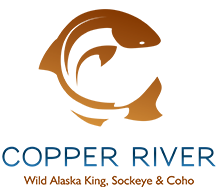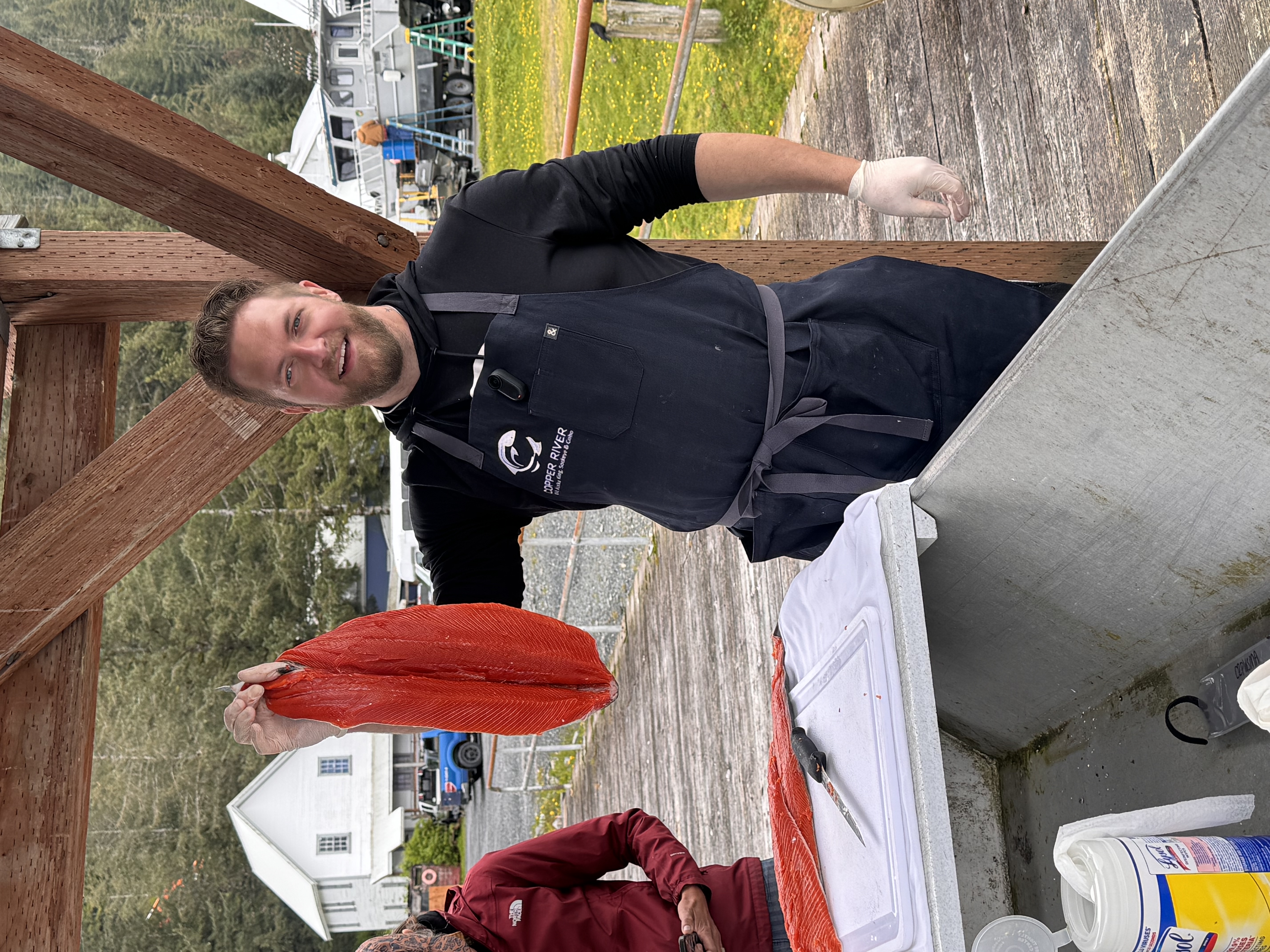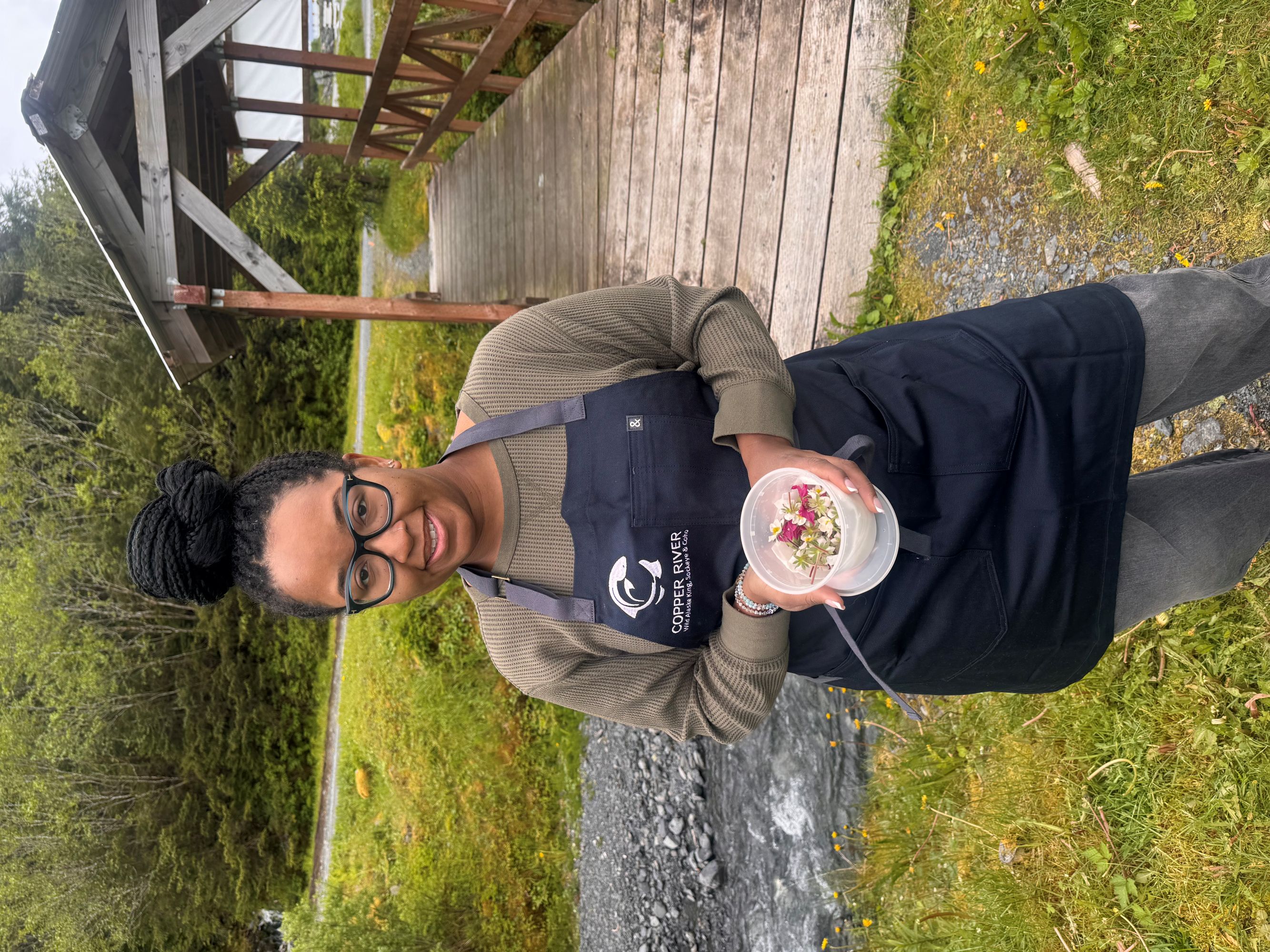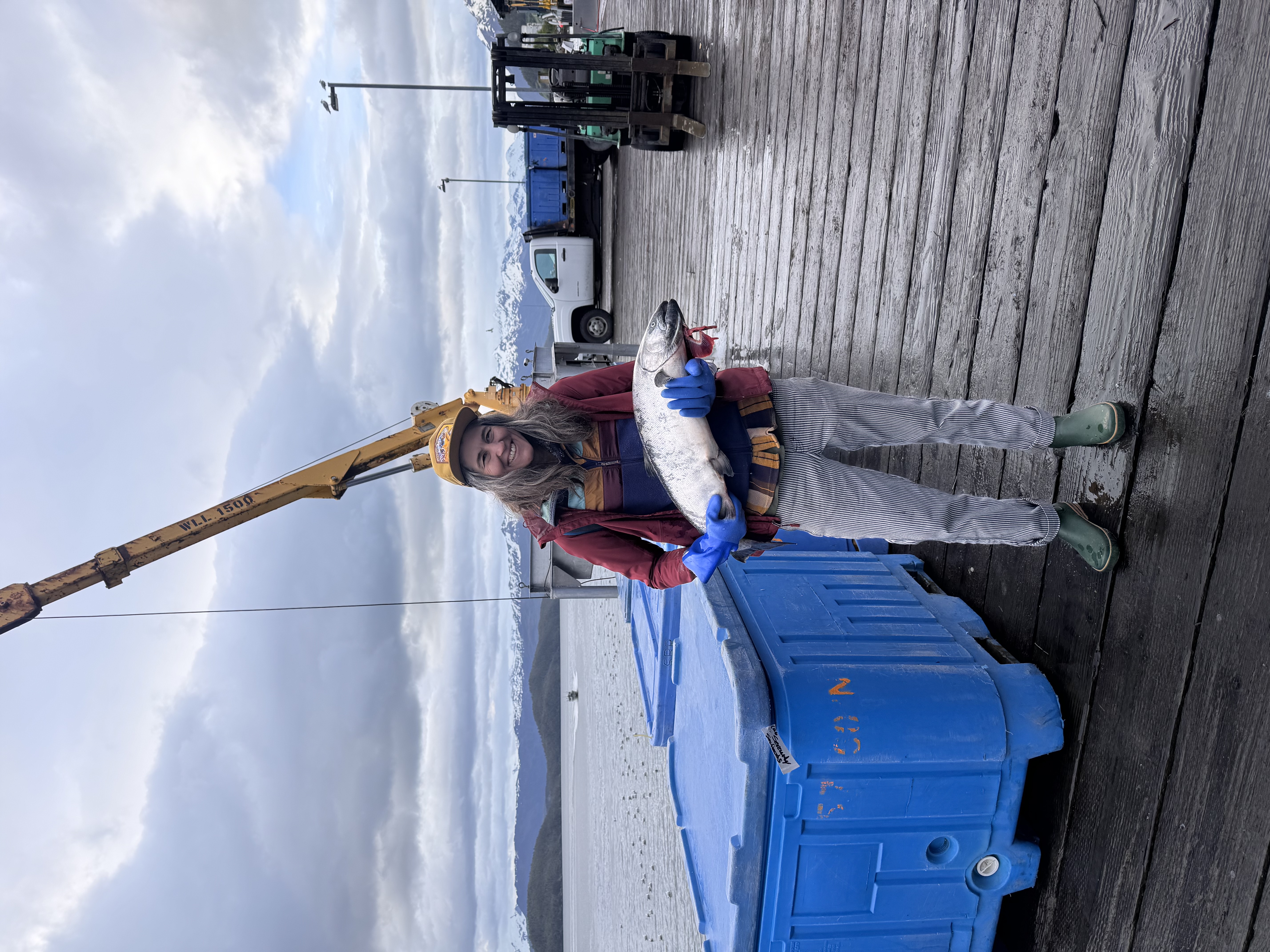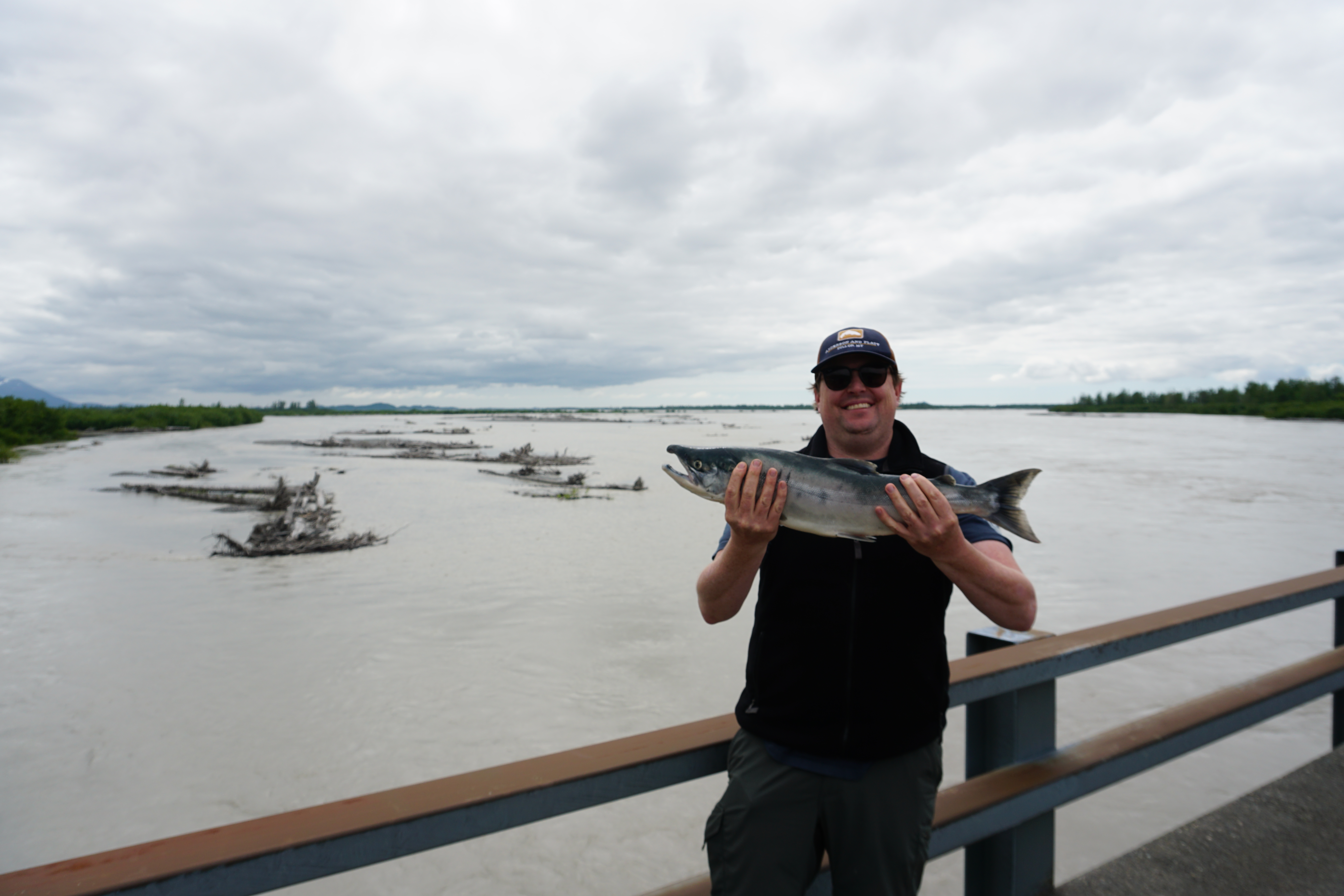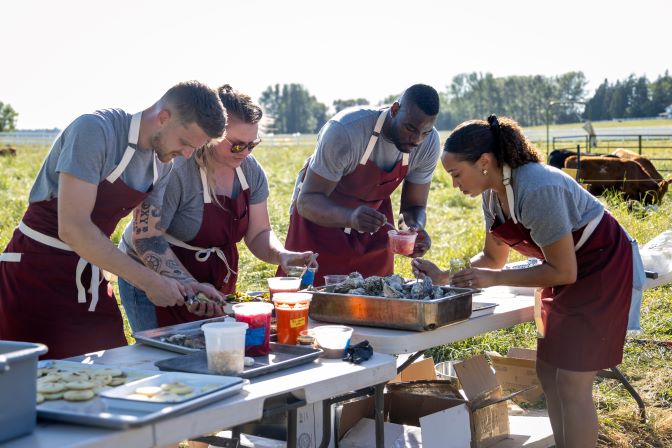By using our website, you agree to the use of cookies as described in our Cookie Policy
Chef Thoughts with Eric LeBlanc
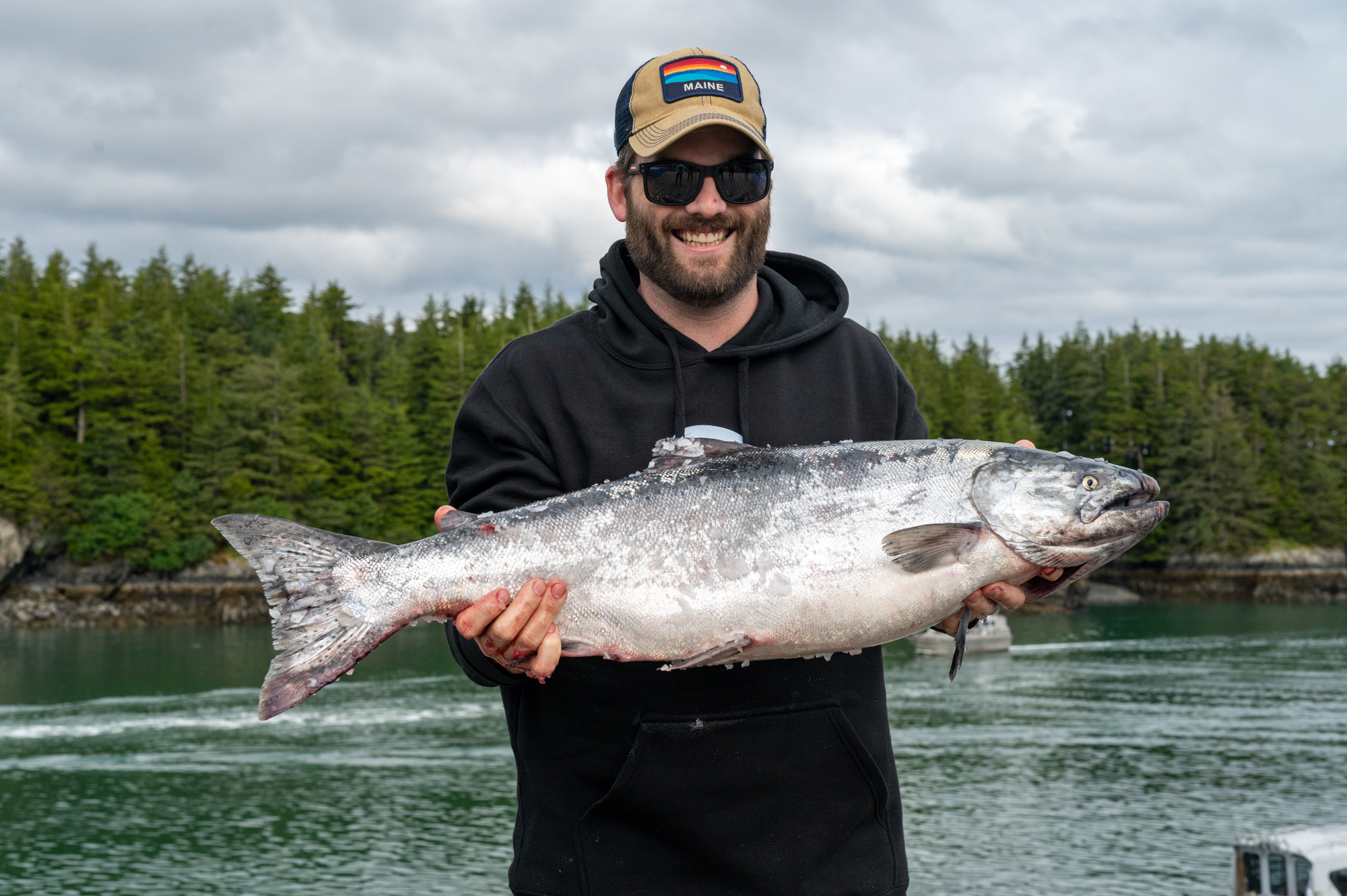
Continuing keeping up with our chefs, we jumped on the phone with Eric LeBlanc to get his thoughts. Dive into another set of insightful answers to our series of chef questions!
Do you feel you gained a deeper appreciation for or understanding of the process of bringing salmon to the world? What aspects of this process stuck out most to you?
Of course, we saw all the elements behind the scenes - I keep telling people we met Fish & Game people, we met conservationists, we met the net menders, the tenders, the processors, the canners, the smokers, everyone involved in the whole process and I think understanding that and how much goes into it, not a lot of people can associate how much work and energy goes into delivering a product like that.
Do you believe that this trip has shaped how you think about sourcing protein, or food in general, even beyond just salmon?
What I took from this trip and everyone else involved in it was having a deeper connection with the source - the product and where it comes from, and everyone involved in that process, how many hands it takes to do something like this - I think for me that was the biggest takeaway. Appreciating everyone behind it that gives us the product.
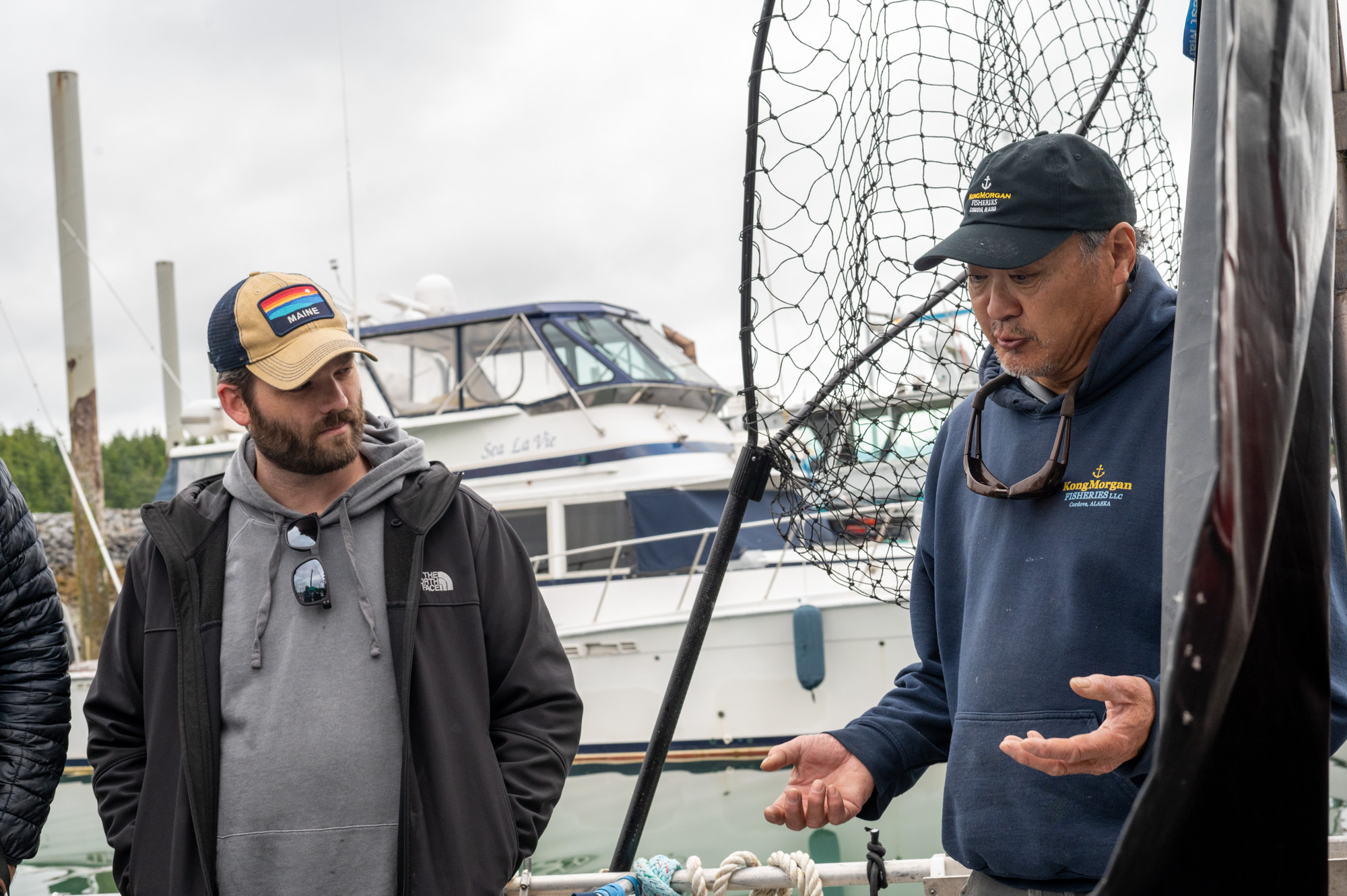
Has your comfort level with serving wild salmon changed?
I think it's gotten better - a lot better, through the education. You know, the proper handling, better techniques - exactly how passionate fisherman are and how delicate they can be. And they're using better techniques like the canning process, and how delicious that can be, and you know, the light smoking and just the different approaches. Talking shop with the guys on the trip, talking more about the food and getting a better understanding of it - appreciating it and doing good by it.
You don't know how many people I've told and shown the pictures and like, I was blown away. I was at seafood competition - the national competition in New Orleans - and there's people from Juneau, Alaska, represented. I got to talk to them, and just said, “you guys have something special up there”.
From what you learned, do you feel that Copper River Salmon is a truly superior product? Or is it just marketing?
I do think it is superior. I don't think it's marketing; I find that, honestly, it just goes back to the great care. You've got a small town who takes such great care of capturing and really making sure that this fish is well taken care of. I mean, it definitely shows in the quality of it, right? I mean, it's a very sustainable fish. And, you know, I think the more we can make sure that people see that it is a better product, the better it will be. I do think it is superior wild salmon. That has to do with the area, too, right? It's just like trying to grow grapes for wines. If you grow grapes in crappy soil, you get crappy wine. That's why people fight over where they have their grapes.
What were your impressions of the efforts put towards sustainability of this wild resource?
My impressions? Good. I think, you know, you use that word sustainability a lot with your chefs, right? Oh, it's very sustainable, right? And you just kind of know, let's say, a pretty broad generality of what sustainability is, you know, like, oh, well, this product is sustainable because they just try and put back compost in the ground, and you just have this broad topic, right? I think when you actually, like, go and see it for yourself and actually truly experience how sustainable it is and how well it's watched. Because when we sat down at the Alaska Department of Fish and Game, it was really neat to see that there's literally people that take the time to monitor how many fish are going out because that's a huge part of like control, and what happens with those fish, right? How someone is doing that job. When you lose that, you lose the fish. It's no longer protected. It's like, oh, it's sustainable because we only catch it from this part of those days into this part of the season. If they go in the river, there's someone actually counting the fish, right? Saying, You know what? These fish need to be counted to be taken care of. So once we reach a certain number done seasons over then. And I think there's something to be said about that. It's pretty eye-opening.
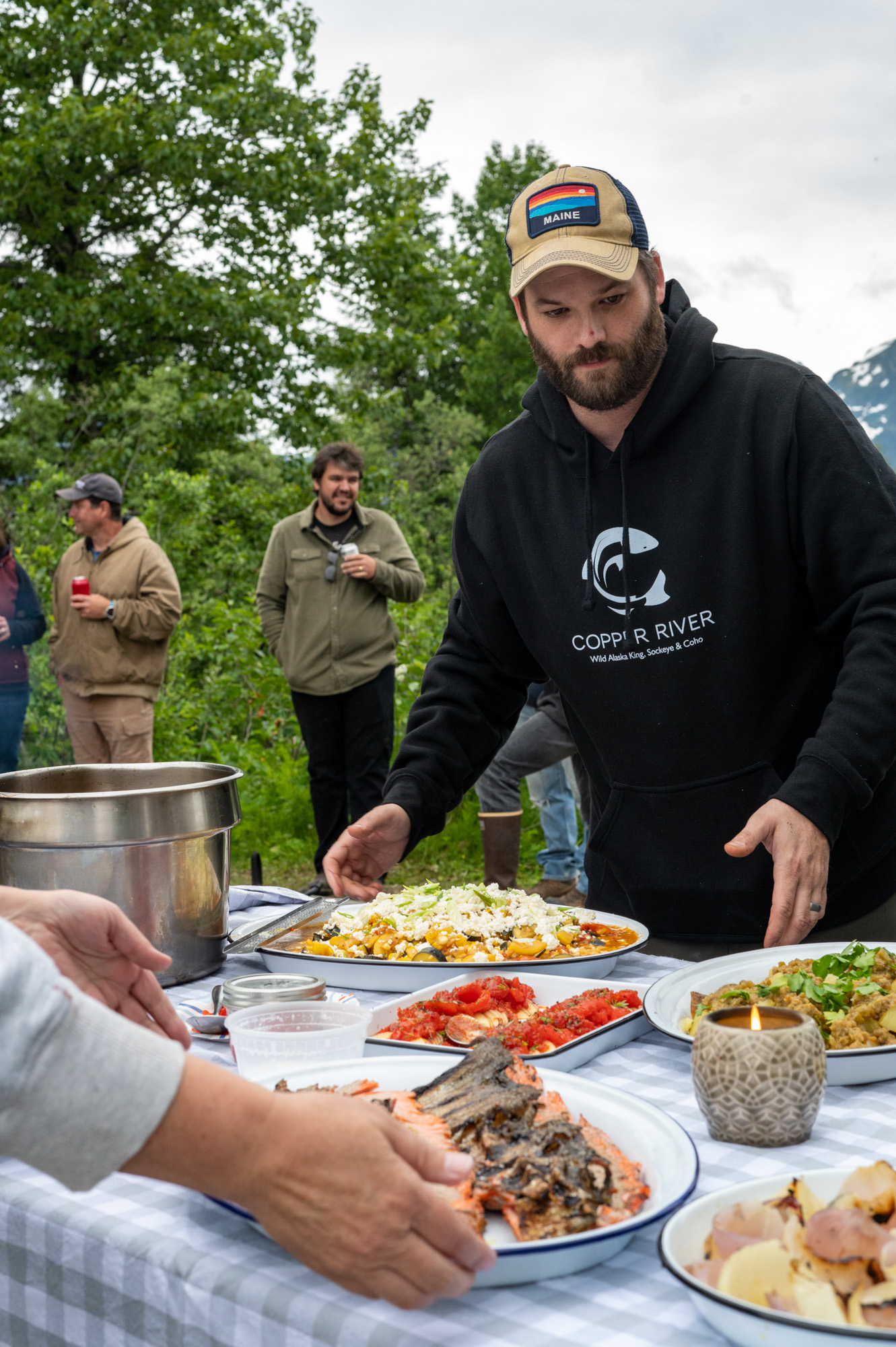
‹ Back
